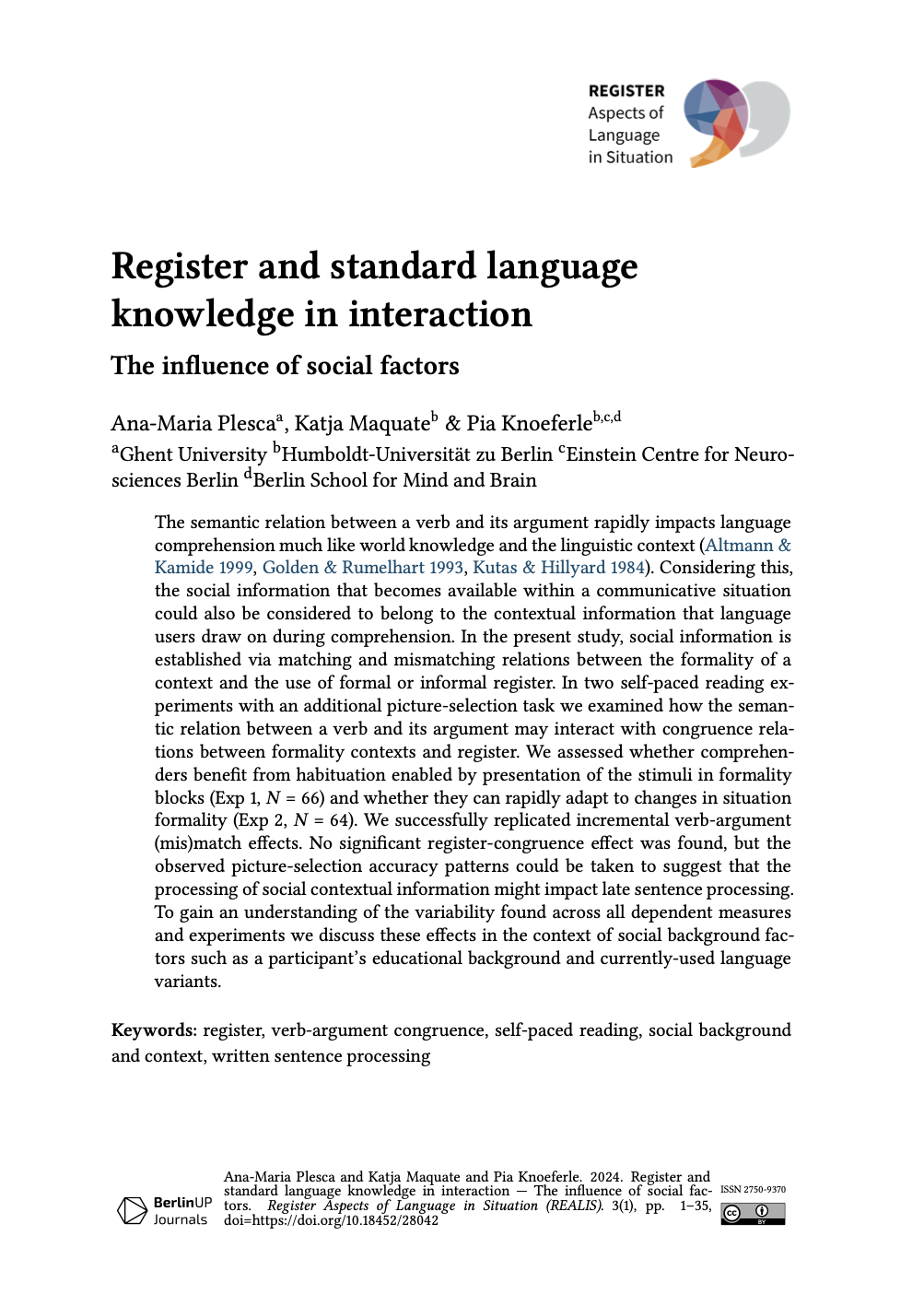Register and standard language knowledge in interaction
The influence of social factors
DOI:
https://doi.org/10.18452/28042Keywords:
register, verb-argument congruence, self-paced reading, social background and context, written sentence processingAbstract
The semantic relation between a verb and its argument rapidly impacts language comprehension much like world knowledge and the linguistic context (Altmann & Kamide 1999, Golden & Rumelhart 1993, Kutas & Hillyard 1984). Considering this, the social information that becomes available within a communicative situation could also be considered to belong to the contextual information that language users draw on during comprehension. In the present study, social information is established via matching and mismatching relations between the formality of a context and the use of formal or informal register. In two self-paced reading experiments with an additional picture-selection task we examined how the semantic relation between a verb and its argument may interact with congruence relations between formality contexts and register. We assessed whether comprehenders benefit from habituation enabled by presentation of the stimuli in formality blocks (Exp 1, N = 66) and whether they can rapidly adapt to changes in situation formality (Exp 2, N = 64). We successfully replicated incremental verb-argument (mis)match effects. No significant register-congruence effect was found, but the observed picture-selection accuracy patterns could be taken to suggest that the processing of social contextual information might impact late sentence processing. To gain an understanding of the variability found across all dependent measures and experiments we discuss these effects in the context of social background factors such as a participant’s educational background and currently-used language variants.
Downloads
Published
How to Cite
Issue
Section
License
Copyright (c) 2024 Register Aspects of Language in Situation

This work is licensed under a Creative Commons Attribution 4.0 International License.



